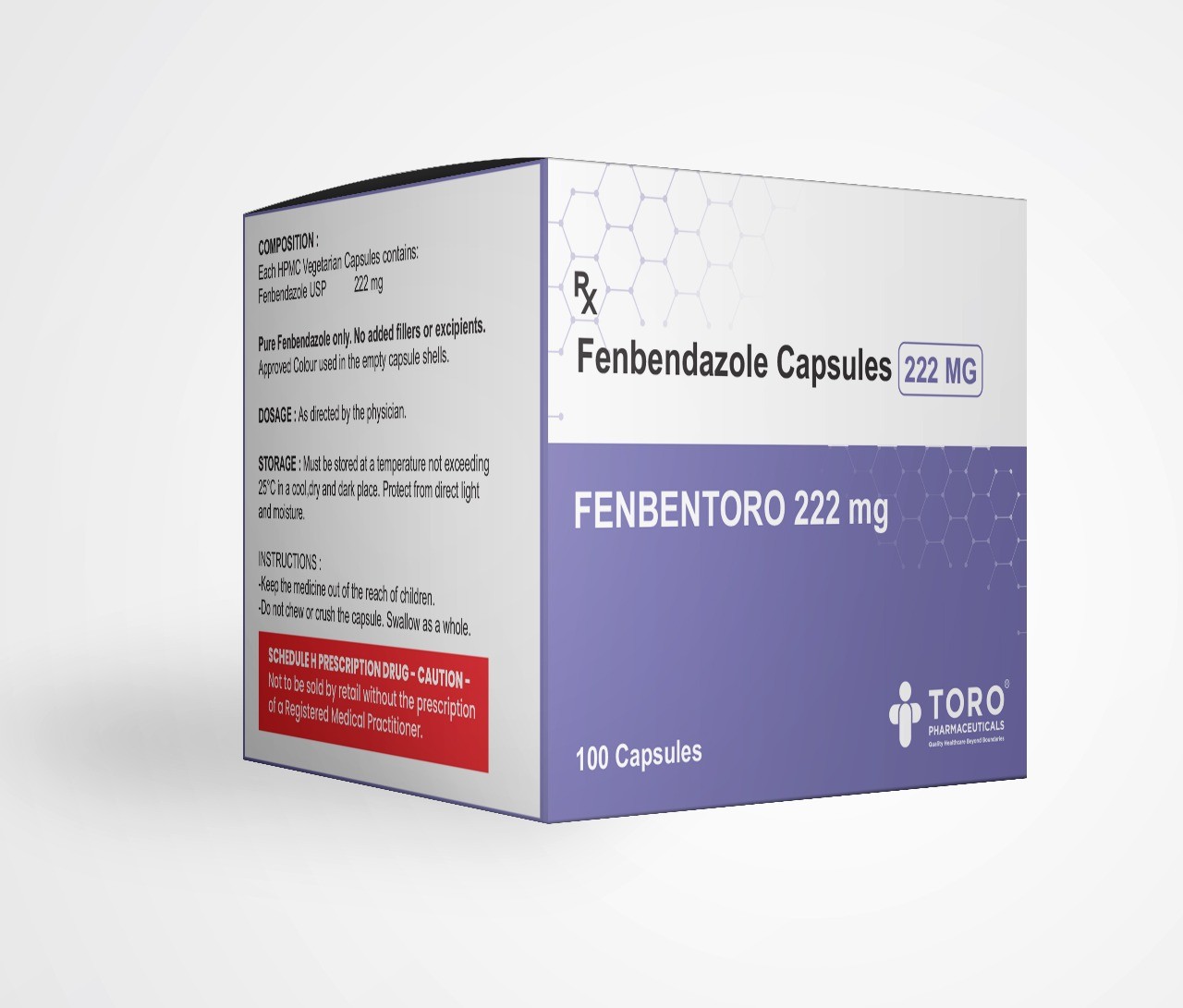Exploring the Systems Behind Fenbendazole and Its Influence On Pet Wellness
Fenbendazole is a widely used anthelmintic understood for its efficiency versus numerous parasites. Its primary mechanism involves the restraint of microtubule development, which disrupts critical processes in these pathogens. Beyond its antiparasitic buildings, fenbendazole additionally shows up to boost immune responses and has anti-inflammatory advantages. Comprehending these multifaceted results could expose brand-new applications for animal health. Inquiries stay regarding its complete potential and security account.
The Pharmacokinetics of Fenbendazole
The pharmacokinetics of fenbendazole, an extensively used anthelmintic in veterinary medicine, includes the study of its absorption, distribution, metabolic process, and discharging within pet systems. After administration, fenbendazole is swiftly absorbed from the gastrointestinal tract, with peak plasma focus happening within hours. Its circulation is influenced by elements such as tissue binding and lipid solubility, permitting it to pass through different cells successfully. The medicine undertakes extensive metabolism primarily in the liver, where it is exchanged energetic and non-active metabolites. These metabolites contribute in the medicine's general effectiveness and security profile. Excretion occurs primarily through feces, with a smaller sized proportion removed using pee. The half-life of fenbendazole varies amongst species, which influences dosing routines. Recognizing these pharmacokinetic properties is crucial for enhancing its therapeutic usage and ensuring reliable parasite control in veterinary practices.
Systems of Action Against Bloodsuckers
Fenbendazole exerts its antiparasitic results mostly with the inhibition of microtubule development in parasites. This interruption affects their architectural integrity and mobile functions, causing damaged power metabolism. Consequently, the drug successfully endangers the survival and recreation of numerous parasitical organisms.
Restraint of Microtubule Formation
Restraint of microtubule development represents a vital mechanism through which particular anthelmintic representatives, including fenbendazole, apply their results on parasites. Fenbendazole binds to tubulin, a protein that forms microtubules, disrupting the polymerization procedure essential for microtubule assembly. This disturbance hinders essential cellular features, including mitosis, intracellular transportation, and structural honesty. As microtubules play a vital role in preserving the form and function of parasitic cells, their restraint leads to cell cycle apprehension and ultimate death of the bloodsucker. This device is especially reliable versus nematodes, as their reliance on microtubules for wheelchair and nutrient absorption makes them prone to fenbendazole. Subsequently, the restraint of microtubule formation is a critical aspect of fenbendazole's therapeutic efficiency in vet medication.
Interruption of Power Metabolic Rate
Interfering with basal metabolism is another important system through which fenbendazole targets parasitical microorganisms. This anthelmintic changes the energy manufacturing paths within bloodsuckers, largely affecting their capability to produce adenosine triphosphate (ATP) By inhibiting sugar uptake and interrupting mitochondrial function, fenbendazole restrictions the energy resources crucial for the survival and recreation of these organisms. Because of this, bloodsuckers become increasingly at risk to environmental stresses and immune feedbacks. Moreover, the interference in power metabolic process not only affects the bloodsuckers straight however also reduces their ability to absorb nutrients, further harming their growth. Overall, the disturbance of basal metabolism represents a basic facet of fenbendazole's efficacy versus various parasitical infections, adding considerably to boosted pet health and wellness outcomes
Possible Adverse Effects and Safety And Security Account
The potential negative effects and safety and security profile of fenbendazole warrant cautious consideration, especially in vet applications. While generally considered safe, some pets may experience negative responses, consisting of intestinal disruptions such as vomiting and looseness of the bowels. Additionally, neurological signs and symptoms, although unusual, have been reported in sensitive people, highlighting the demand for tracking during treatment.

Fenbendazole's safety in different varieties, consisting of canines and felines, has been documented, yet dose and period click resources of therapy must be very carefully taken care of to decrease dangers. Expecting or breast feeding pets might also need unique attention, as the impacts on establishing unborn children or nursing children are not completely comprehended.
Normal veterinary assessments can help minimize prospective side impacts and assure the drug is carried out appropriately. As a result, while fenbendazole is an effective anthelmintic representative, more info here watchfulness regarding its side effects is important for maintaining pet wellness.

Fenbendazole's Influence on Immune Feature
Fenbendazole has actually been noted for its potential to regulate immune system reactions in animals. Its anti-inflammatory homes may contribute to boosted immune function, offering a dual advantage in handling health (fenbendazole). Comprehending these impacts is necessary for evaluating fenbendazole's role in vet medicine
Body Immune System Inflection

Anti-inflammatory Characteristics
Anti-inflammatory results stand for a substantial element of fenbendazole's impact on immune function. Study suggests that fenbendazole may reduce the production of pro-inflammatory cytokines, which are crucial in moderating inflammatory responses. By modulating these cytokines, fenbendazole can possibly relieve inflammation-related problems in animals. This anti-inflammatory activity not only help in handling symptoms connected with numerous conditions however likewise enhances total body immune system efficacy. In addition, its ability to advertise a balanced immune reaction helps protect against too much inflammatory damage, which can lead to persistent health and wellness issues. Fenbendazole's role in swelling monitoring highlights its importance in veterinary medication, providing a twin benefit of antiparasitic action and immune system support for pet wellness.
Applications Beyond Standard Parasitical Infections
While mostly recognized for its performance against numerous parasitic infections, fenbendazole has actually garnered attention for prospective applications yet conventional extent. Recent researches recommend that fenbendazole may have beneficial effects on mobile health and wellness and immune feedback, making it an appealing candidate for handling other health and wellness conditions in pets. Its reported anti-inflammatory residential properties might supply relief for animals suffering from persistent inflammatory illness. In addition, some research indicates that fenbendazole could contribute in sustaining the total wellness of animals by improving vitamins and mineral absorption and gastrointestinal health and wellness. Its possible as an accessory therapy in cancer therapy has triggered passion, as initial findings recommend it could prevent lump cell growth in particular contexts. These diverse applications highlight fenbendazole's flexibility, encouraging further exploration check it out into its multifaceted advantages for animal health beyond its standard use as a deworming representative.
Future Research Directions and Ramifications for Pet Health And Wellness
The exploration of fenbendazole's potential applications has actually opened up new opportunities for research targeted at improving animal health and wellness. Future researches might concentrate on its efficiency against a broader variety of virus, consisting of bacteria and infections, therefore broadening its role in veterinary medication. The ramifications of fenbendazole's mechanisms, such as its effect on immune inflection, warrant better investigation to recognize how it can reinforce general health and wellness in different species.
Additionally, research study might discover ideal does and formulations to take full advantage of efficacy while reducing prospective adverse effects. Checking out fenbendazole's collaborating results with other drugs might lead to a lot more reliable therapy procedures. Longitudinal researches examining long-lasting end results in animals treated with fenbendazole could give valuable insights into its safety and security and effectiveness. Generally, the ongoing expedition of fenbendazole offers appealing potential to enhance pet health and wellness, requiring a joint approach amongst scientists, veterinarians, and pharmaceutical designers to promote advancements in this field.
Often Asked Questions
Can Fenbendazole Be Used in Animals for Parasite Prevention?
The concern of whether fenbendazole can be made use of in livestock for parasite avoidance is relevant, as producers seek efficient therapies (fenbendazole). Research study indicates it might supply benefits, however proper standards and veterinary recommendations are crucial for safe usage
What Is the Recommended Dosage of Fenbendazole for Different Animals?

Exist Any Kind Of Known Drug Interactions With Fenbendazole?
Present expertise suggests that fenbendazole might interact with specific medications, potentially affecting their efficiency or metabolic rate. Vet experts recommend speaking with a vet to examine individual pet situations and figure out any type of possible interactions before administration.
Just How Does Fenbendazole Contrast to Various Other Antiparasitic Medicines?
Fenbendazole is usually contrasted to various other antiparasitic medicines based upon efficacy, spectrum of task, and safety profiles. It is favored for its effectiveness versus a vast array of parasites while generally showing very little adverse effects in pets.
Is Fenbendazole Effective Against Viral or Microbial Infections in Animals?
The efficiency of fenbendazole against viral or bacterial infections in pets stays unverified. Research study largely focuses on its antiparasitic residential properties, with limited proof sustaining any type of duty in treating non-parasitic infections in vet medication.